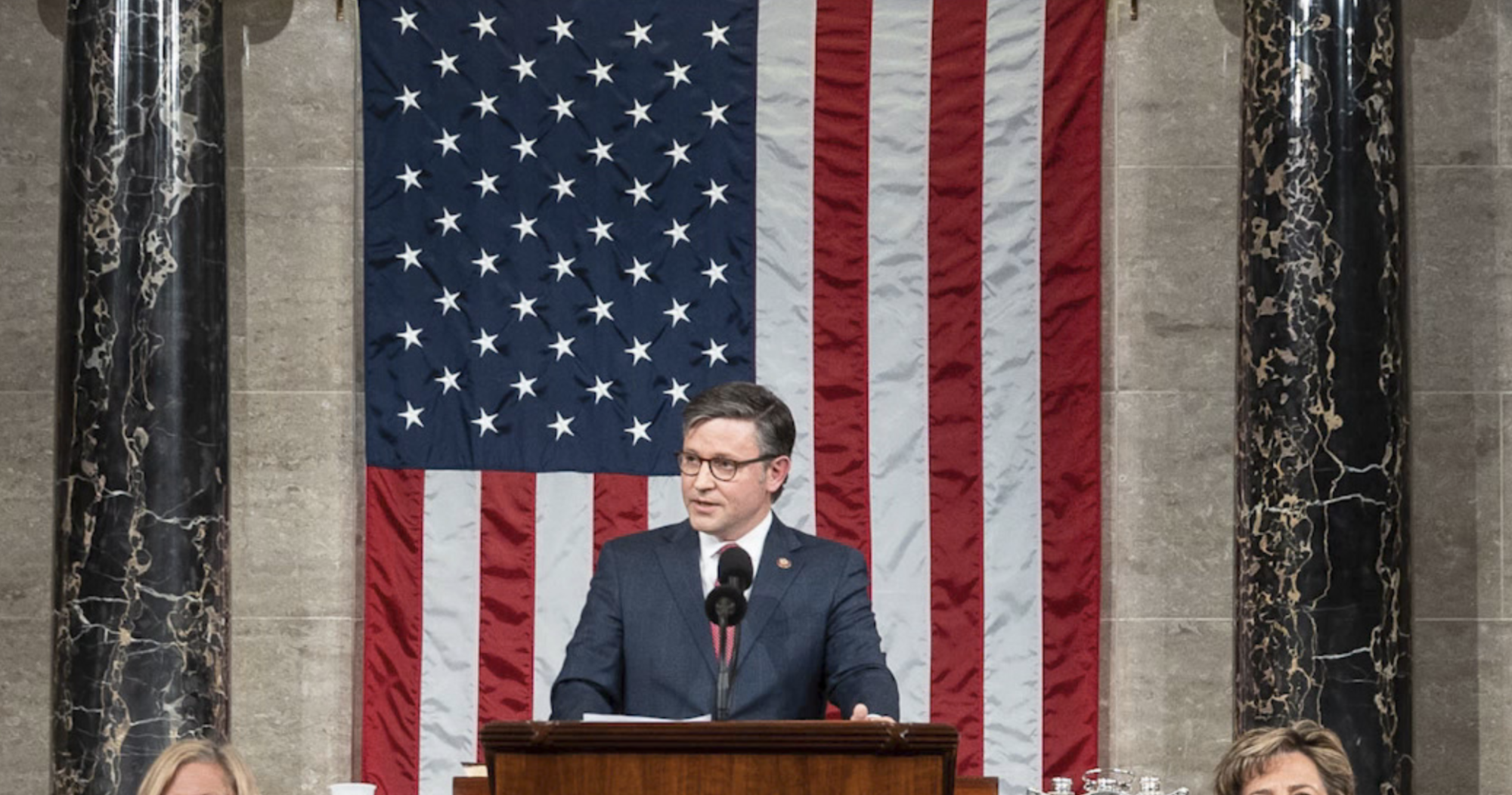Politics
New House Speaker Johnson declares: ‘it’s not guns’
By Jake Beardslee · October 27, 2023
In brief…
- A mass shooting in Lewiston, Maine, claimed the lives of 18 people, making it the deadliest mass shooting of 2023 in the United States.
- New House Speaker Mike Johnson, a Louisiana Republican, asserted that the issue is with "the human heart" and not firearms, emphasizing the importance of the Second Amendment.
- Critics argue that the high incidence of mass shootings in the United States contradicts this perspective and call for meaningful gun reform.
- Johnson's history of opposing gun reform in Congress raises doubts about the prospects of legislative action.

In the wake of the devastating mass shooting in Lewiston, Maine, which left 18 people dead, a massive manhunt is still underway for the suspected shooter, an Army reservist. According to an NBC News report, this tragic incident marks the 565th mass shooting in the United States in 2023, making it the deadliest so far this year, according to the Gun Violence Archive.
Amid the ongoing crisis, new House Speaker Mike Johnson, a Louisiana Republican, sat down with Fox News’ Sean Hannity to discuss the urgent need for new safeguards to prevent future mass shootings. When asked about the possibility of legislative action, Johnson responded, “At the end of the day, the problem is the human heart. It’s not guns, it’s not the weapons. At the end of the day, we have to protect the right of the citizens to protect themselves, and that’s the Second Amendment.”
Nonetheless, it is essential to reflect on several crucial aspects in response to Johnson’s statement. To begin with, the claim that the issue primarily resides in “the human heart” rather than firearms contradicts the experiences of other nations. Mass shootings are notably more prevalent in the United States, and attributing this phenomenon solely to the “human heart” may not align with the broader context.
Furthermore, Johnson’s stance that the crisis in Maine is not the time to discuss new legislation is a familiar refrain. The question remains whether there will ever be a suitable moment for such discussions, as history has shown that the interest in gun reform tends to wane once immediate crises subside.
Mike Johnson’s reaction, while disheartening, follows an expected pattern. Before assuming his congressional role, he associated school shootings with divorce, “radical feminism,” and reproductive rights. In one instance, he also raised concerns regarding the teaching of evolutionary biology. Despite these positions, Johnson has consistently cast votes against firearm reform measures in Congress.
While the tragedy in Maine may spur renewed calls for gun control, those looking to the leadership of the House under Johnson’s guidance may find their hopes unfulfilled. The ongoing debate on gun control in the United States remains as contentious as ever, and the path to meaningful reform remains unclear.